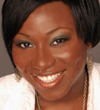 Conferences – to go or not to go? That is the questions. The answer isn’t simple. In the short time I’ve been writing, I’ve attended several events or conferences. Some I left feeling unimportant, degraded and lower than dirt, as if I was totally out of my league. What made you think you were worthy of being in the same room with BIG name authors??? That was of course after I had spent my money to attend and was promised the world only to have it all pulled away.
Conferences – to go or not to go? That is the questions. The answer isn’t simple. In the short time I’ve been writing, I’ve attended several events or conferences. Some I left feeling unimportant, degraded and lower than dirt, as if I was totally out of my league. What made you think you were worthy of being in the same room with BIG name authors??? That was of course after I had spent my money to attend and was promised the world only to have it all pulled away.
But then….there are some that are the epitome of what author conferences should be about. You meet other authors in the industry. Some at the same in your career as you, some that have been in the industry for years and some that are just beginning to enter into the wonderful realm of being an author. And here’s the thing, you can learn something from every one of them. Then there are the readers. Those wonderful, delightful, hilarious readers that are not shy about telling you exactly how they feel about your work. Not to mention the workshops that teaches you about your craft, the industry, the business of writing. And the networking with agents, editors, publishers—there is nothing like a good conference.
There are several that take place each year, and no, you cannot attend and should not attempt to attend all of them. You will be broke before you sell your first novel. However, you should find one or two that will fulfill your need to improve your craft, build your brand and feed your drive to write. Every conference is not for everyone and it takes a minute to find the ones that fit your needs, but once you do, the rewards are endless.
Here are three conferences that seem to be popular and please anyone that reads this post add the ones you know about in the comment section.
There’s the Romance Writers of America Conference (http://www.rwa.org/ ),
The National Black Bookclub Conference (http://www.nationalbookclubconference.com/),
The Romance Slam Jam Conference (http://www.romanceslamjam.org/ ).
Why am I talking to you about conferences? I’m glad you asked. For the last two years I’ve attended the RSJ, Romance Slam Jam Conference. The event has proven to be not only worth the reasonable fess, but it is so worth your time. The RSJ will leave you energized and ready to take on the next year of challenges, adventures, setbacks and comebacks. You will leave there with lifelong friends, new readers, mentors with wisdom and experiences to help you along your journey but most of all—you will leave there with a sense of ownership of your writing career.
To be fair, I put in a conference I no plans to attend again, one I have not attended and one I will move heaven and earth not to ever miss. You have to select the one that works for you.
Until the next time,
Iris Bolling
www.sirient.com
www.irisbolling.com
If you found this post useful, please use the Share links to spread the word to other authors.
ANNOUNCEMENT: Hello All, Dee here. I’ll be conducting a FREE eBook formatting workshop for people who are signed up for my monthly newsletter.
Topic: eBook Formatting Basics for Fiction Titles Cost: Free Date: March, 24, 2012 Time: 3-4 p.m. Central Location: Become A Successful Author Website (link and password will be given the day before the event)
Don’t have a copy of Become A Successful Author? What are you waiting for? Become A Successful Author will be used in the “How To Write That Novel” course at Chicago State because it covers everything from branding to writing to editing to formatting and uploading electronic and print books to marketing and so much more. Your time is money. Look at all the time, thus money, you’ll save by ending your search for answers: Purchase Become A Successful Author (eBook) for only $4.99 from: Amazon (US), Amazon (UK), Barnes & Noble or print copies for only $7.99 by using the Contact page of this website and tell Dee know how many copies you’d like and shipping address. She’ll email the ordering information. Or you can purchase the print version from any book store for $9.99.







